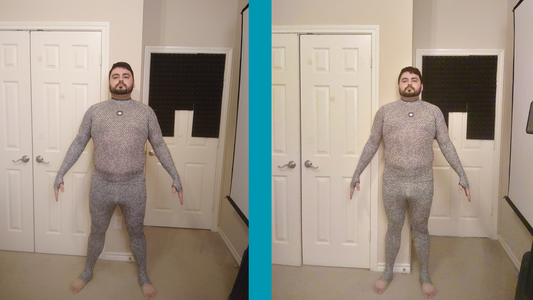

4 Components of a Healthy Diet for Weight Loss
There is more to losing weight than just spending all day at the gym. Starving yourself only puts your body into conservation mode so it actually stores more fat. Your diet plays a significant role in your weight loss plan, but it needs careful consideration.
Understanding the components of a healthy diet for weight loss makes it easier to build your meal plan, enjoy your meals and still lose weight. ZOZOFIT is here to help.
The 4 Components of a Healthy Diet for Weight Loss
It helps to break down your diet plan into individual components so you can address concerns one at a time.
1. Water
Hydration is critical for the body because it aids in nutrient delivery to your body’s cells, contributes to temperature regulation and even helps curb hunger. Dehydration creates a variety of complications, including cramping, headaches and fatigue. Drinking plenty of water every day helps you keep your body healthy enough to burn excess fat.
2. Protein
Protein is a building block for your body’s cells, and it provides vital nutrients for energy and muscle tone. When you want to lose weight, lean protein should be part of every meal. Protein digests slowly, helping you feel full longer and reducing your food cravings. Some of the best protein sources include things like chicken, Greek yogurt, fish and beans. As a bonus, beans contribute another of the necessary components of a healthy diet, as they serve as a good source of fiber.
3. Fiber
Fiber is important for a healthy diet because it helps you feel full despite maintaining a calorie deficit. The body does not absorb or store fiber, so it can not contribute to added weight. Many good sources of fiber are vital for a healthy diet because fiber sources include dark leafy greens, whole grains and fruits and vegetables. Many nuts and seeds are good fiber sources, too. You get a dual benefit from these foods because they are nutrient-dense, which is essential when maintaining a calorie deficit to lose weight.
4. Healthy Fats
Although fat has a negative connotation in most circles, the truth is the body needs some level of healthy fats. Fats are essential for cellular health, some nutrient absorption and even hormone production. Olive oil, coconut oil and avocado oil are good replacements for saturated fats in the kitchen, such as butter. Add salmon and similar omega-3-rich fish to your diet to expand your options for healthy fats.
Create a balanced meal plan that incorporates all these elements for maximum benefit potential.
Balancing the Components of a Healthy Diet With a Calorie Deficit
If you plan on maintaining a calorie deficit when meal planning, you might worry that including all these components is challenging. Remember that these elements are nutrient-dense calorie sources, so you get the best possible value from including them in your calorie intake.
With the right activity levels and balanced meals that include all the components of a healthy diet, weight loss gets easier. For more support, accountability and resources, check out the ZOZOFIT app and the ZOZOSUIT today.

![zf-w-[168px] zf-h-[40px]](http://zozofit.com/cdn/shop/t/15/assets/logo-desktop.png?v=117713855448369080381753069598)




